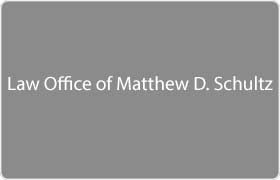 Bunnell Criminal Lawyers, Florida
Bunnell Criminal Lawyers, Florida
Sponsored Law Firm
-
 x
x

Click For More Info:
-
Law Office of Matthew D. Schultz
495 Grand Blvd. Suite 206 Miramar Beach, FL 32550» view mapAccident & Injury Law Over 25 Years of Experience
Mr. Schultz is an accomplished lawyer that has over twenty-five years of legal experience in accident & injury matters.
800-960-5971
Sponsored Lawyers
1-10 of 35 matches
Divorce & Family Law, Criminal, Accident & Injury, Health Care, Consumer Rights
Mr. Smith, a founding member of Smith, Hood, Perkins, Loucks, Stout, Bigman, Lane & Brock, P.A., has been practicing law for more than thirty-five years. He focuses his practice in the areas of family law and criminal litigation. Mr. Smith was Board Certified as a specialist in criminal trial law from 1987 to 1997 and is currently Board Certified as a specialist in Marital and Family law.
(more)



 Matthew Schultz Saint Cloud, FL
Matthew Schultz Saint Cloud, FL Practice AreasExpertise
Practice AreasExpertise

